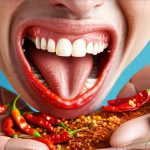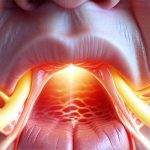Indigestion, commonly experienced as discomfort in the upper abdomen, is often associated with food – overeating, spicy meals, or dietary intolerances. However, many individuals surprisingly report experiencing indigestion after drinking water. This seemingly paradoxical reaction can be unsettling and prompts questions about why a substance generally considered benign and essential for life could trigger digestive upset. The sensation isn’t typically related to the water itself being “bad” but rather stems from how it interacts with individual physiological factors, existing health conditions, or even the speed and manner in which it’s consumed. Understanding this phenomenon requires delving into the complex interplay of our digestive system and recognizing that what constitutes a comfortable experience varies greatly from person to person.
The human body is an incredibly adaptable machine, but also one susceptible to subtle imbalances. The digestive process relies on a carefully orchestrated sequence of events – mechanical breakdown, enzymatic digestion, and absorption. Disrupting this process, even with something as seemingly innocuous as water, can lead to symptoms like bloating, nausea, acid reflux, or a general feeling of fullness and discomfort. It’s important to note that experiencing occasional indigestion after drinking water isn’t necessarily cause for alarm; however, persistent or severe symptoms warrant investigation by a healthcare professional to rule out underlying medical conditions. This article will explore the common reasons behind this puzzling experience, offering insights into potential causes and strategies for mitigating discomfort.
The Role of Stomach Acidity & Dilution
The stomach’s environment is naturally acidic, crucial for breaking down food and protecting against harmful bacteria. Hydrochloric acid (HCl) plays a central role in this process. When water is consumed with or immediately after a meal, it can temporarily dilute the gastric juices. This dilution isn’t inherently problematic but may reduce the efficiency of digestion, especially if stomach acidity is already low. For individuals prone to low stomach acid (hypochlorhydria), even small amounts of water can exacerbate this issue, leading to slower food processing and potential indigestion symptoms. – Hypochlorhydria can be caused by aging, chronic stress, or certain medications.
However, the relationship isn’t always straightforward. Some people experience discomfort not from dilution but because their bodies react defensively to the sudden influx of liquid. The stomach may perceive this as a signal that it’s being “overfilled” even if the total volume is within normal limits, triggering increased acid production in an attempt to restore balance. This overproduction can then lead to heartburn or reflux. It’s important to distinguish between indigestion caused by GERD and indigestion directly caused by water dilution. It’s a complex feedback loop, and individual responses vary widely depending on factors like existing digestive health and sensitivity levels.
Furthermore, the temperature of water can play a role. Very cold water might constrict blood vessels in the stomach, potentially slowing down digestion. Warm water is generally considered easier to digest and may even aid in the breakdown of food. This isn’t to say cold water always causes indigestion, but it’s a factor worth considering for those experiencing discomfort. Ultimately, the key lies in understanding how your body personally responds to different types and temperatures of water.
Dehydration & Rapid Rehydration
Paradoxically, dehydration itself can contribute to indigestion. When dehydrated, the digestive system doesn’t have enough fluid to function optimally, leading to constipation and discomfort. Then, rapidly rehydrating – drinking a large amount of water quickly – can sometimes trigger digestive upset. This is because the body may struggle to process the sudden influx of liquid, potentially causing bloating or nausea. – It’s more common when transitioning from a severely dehydrated state.
The speed at which water is consumed matters significantly. Gulping down large quantities of water overwhelms the digestive system’s capacity to absorb it efficiently. Instead, sipping water slowly throughout the day allows for better absorption and minimizes the risk of discomfort. This gradual rehydration helps restore fluid balance without shocking the system. The body’s ability to adapt is crucial here.
Moreover, the type of water consumed can be a factor. Highly mineralized water (containing high levels of calcium, magnesium, or sulfates) may cause digestive issues in some individuals, especially those with sensitive stomachs. While these minerals are essential for health, excessive amounts can disrupt the gut flora and lead to bloating or diarrhea. Filtered water is often gentler on the digestive system as it removes potentially irritating impurities.
Underlying Gastrointestinal Conditions
Existing gastrointestinal conditions are frequently at the root of indigestion triggered by water. – These conditions may be previously undiagnosed or actively managed but still contributing to sensitivity.
Irritable Bowel Syndrome (IBS) is a common culprit. Individuals with IBS often experience heightened sensitivity to changes in fluid intake, and even small amounts of water can trigger bloating, cramping, or altered bowel habits. The exact mechanisms aren’t fully understood, but it’s believed that the rapid expansion of fluids in the gut stimulates visceral hypersensitivity, leading to discomfort. – Different subtypes of IBS (diarrhea-predominant, constipation-predominant) may respond differently to water intake.
Gastroparesis, a condition where the stomach empties too slowly, can also cause indigestion after drinking water. The delayed gastric emptying leads to a feeling of fullness and bloating, even with minimal fluid intake. This is often associated with diabetes or nerve damage but can occur independently. – Gastroparesis requires medical diagnosis and management.
Acid Reflux (GERD) is another common contributor. While seemingly counterintuitive, water can sometimes worsen acid reflux symptoms. When the lower esophageal sphincter (LES) – the muscle that prevents stomach acid from flowing back into the esophagus – isn’t functioning correctly, fluids can contribute to increased pressure in the stomach, forcing acid upwards and causing heartburn. If you struggle with this, it’s worth exploring why some people get reflux from water.
Eating Habits & Timing of Water Intake
The way we eat significantly impacts our digestive comfort. – Rapid eating, consuming large meals, or failing to chew food thoroughly all put extra strain on the digestive system.
Drinking water during a meal is often discouraged because it dilutes digestive enzymes and can slow down the breakdown of food. However, for some individuals, sipping small amounts of water during a meal may actually aid digestion by softening the food and making it easier to swallow. The ideal timing depends on individual tolerance and preferences. – Experimenting with different approaches can help determine what works best.
Drinking water immediately before or after a meal can also cause problems for some people, as discussed previously. Allowing time between fluid intake and meals allows the stomach to focus on digesting food without being overwhelmed by excess liquid. A general rule of thumb is to wait at least 30 minutes after eating before drinking a significant amount of water.
Hydration Habits & Individual Sensitivity
Ultimately, individual sensitivity plays a huge role in how we experience indigestion after drinking water. Some people have naturally more sensitive digestive systems than others and are more prone to discomfort from even minor fluctuations in fluid intake. – Genetic predisposition and lifestyle factors both contribute to this sensitivity.
Chronic dehydration can lead to a desensitization of the digestive system, making it less adaptable to changes in fluid levels. Rehydrating slowly and consistently throughout the day helps restore normal function and reduces the likelihood of indigestion. Furthermore, paying attention to your body’s signals is crucial. If you notice consistent discomfort after drinking water, even with adjustments to timing and quantity, it’s important to consult a healthcare professional to rule out underlying medical conditions or identify potential sensitivities. – Some people may need repeated breath tests to determine the root cause. Listen to your body; it will tell you what it needs. If bloating is a recurring issue, consider if why some athletes experience post-workout bloating could be relevant to your situation or whether hypermobile joints often experience bloating. To understand more about how water affects digestion, consider exploring why some people experience bloating after drinking water or even why some people feel bloated after salads. Finally, a more in-depth investigation could be warranted with full GI mapping even without pain.


















